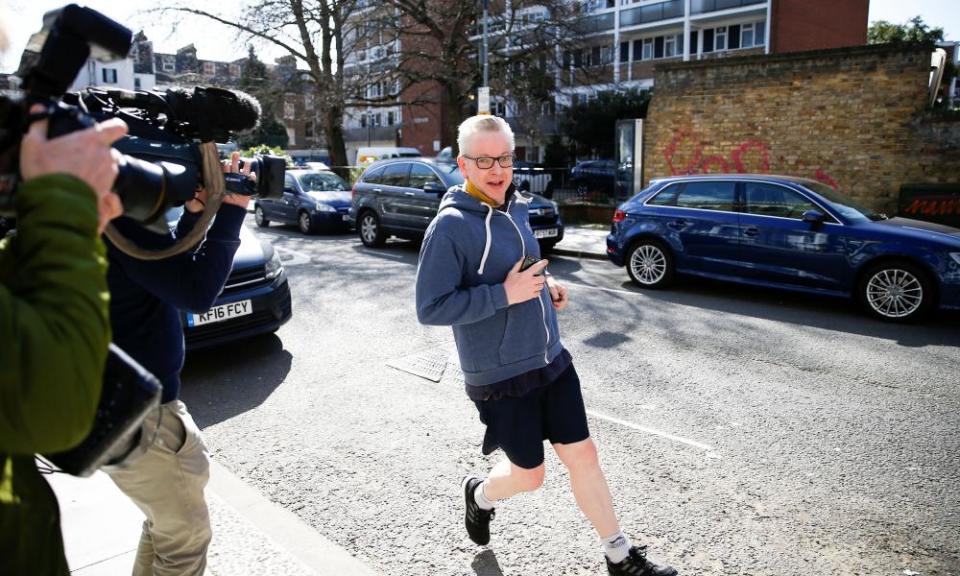Tory coup fails to materialise as Theresa May limps on

If it was a coup, it didn’t last long. Cameras arrived early on Sunday morning outside the houses of David Lidington, the prime minister’s de facto deputy, and Michael Gove, the environment secretary, after two Sunday newspapers reported that one or the other could take over as caretaker prime minister from Theresa May in an emergency intervention.
Discontent with the prime minister across large parts of the cabinet is real as the seemingly never ending Brexit impasse persists. But, on this occasion, Downing Street had little time even to get alarmed ahead of Monday’s meeting of cabinet.
Cabinet minister after cabinet minister appeared on television to denounce the idea of a plot, starting with the chancellor, Philip Hammond shortly after 9am. Talk of a coup was “frankly self-indulgent at this time”, an impassive Hammond said, despite being named as a Lidington supporter in the Sunday Times.
Allies of the chancellor later suggested it was “a device” promoted by those who want to further undermine May’s authority as she tries, again, to get her Brexit deal through the Commons this week. Neither Hammond nor Lidington was involved in any such plotting, they insisted.
Lidington emerged in the mid-morning sun in his Buckinghamshire constituency, clearly amused at the attention. “One thing that working closely with the prime minister does is cure you completely of any lingering shred of ambition to want to do that task,” the minister for the cabinet office said.
Then Gove, who had been tipped for the top by the Mail on Sunday, volunteered his own statement of support to the waiting journalists: “It’s not the time to change the captain of the ship.”

The environment secretary, Michael Gove, outside his home in London on Sunday.Photograph: Henry Nicholls/Reuters
In any event, appointing Lidington without a full Conservative leadership contest would have been impossible, given that the long-serving former Europe minister, who voted remain in 2016, is not trusted by the Conservative party’s right wing.
“If the answer is a caretaker Mr Lidington, or someone else, what the hell is the question?” the former Tory leader Iain Duncan Smith, now a leading Brexiter, said on BBC One’s The Andrew Marr Show.
Related: Ministers deny plotting to oust May as Brexit rebels head for Chequers
Key cabinet ministers, such as Jeremy Hunt, the foreign secretary and an obvious leadership contender, are understood to be cautious about endorsing an interim leader such as Lidington. They fear he might consider compromising over membership of the customs union, the most obvious area for cooperation with Labour.
As for Gove, some in Westminster argued the emergence of his name reflected more on his own ambition. His decision to go up against Boris Johnson immediately after the 2016 referendum, in effect handing Downing Street to May, has not been forgotten.
Downing Street said the plotting amounted to little more than hostile press briefing. “You know it is organic and realistic when there are almost identical details in two Sunday papers and nobody else has a sniff of it,” one insider said.
May, meanwhile, carried on with her day, working at her country retreat of Chequers, where she had invited Boris Johnson, Dominic Raab and other senior MPs, mostly hard Brexiters, to try once again to persuade them to back her Brexit deal.
Related: How could Theresa May be deposed?
Yet there are cabinet ministers who are prepared to volunteer in private that they believe May should go, either to help the Brexit deal over the line or, more likely, immediately after, before the future trade talks begin.
Those who say they want to see May go quickly recognise the EU negotiations are at such a delicate – and late – stage that it would need a new prime minister to be appointed without a contest, mirroring the old “magic circle” model abandoned by the Conservatives in the 1960s.
“The discontent is mounting and Wednesday was the clincher,” said one cabinet source, arguing that the key moment came when May suddenly abandoned the idea of asking the EU for a long extension to article 50 to frighten the hard Brexit-supporting European Research Group. “Something has to change. But a full leadership contest would be hugely damaging at this stage.”
There has been repeated talk of lesser revolts by cabinet members throughout the Brexit negotiations, but few have come to anything. The prime minister’s authority may have been almost completely eroded, but it would be an unlikely time for a plot, given her ongoing negotiations with Johnson and the remaining Brexit holdouts.

 Yahoo News
Yahoo News 
